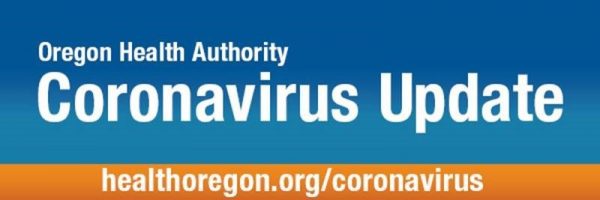COVID-19 has claimed three more lives in Oregon, raising the state’s death toll to 58, the Oregon Health Authority reported on Wednesday April 15th.
Oregon Health Authority also reported 33 new cases of COVID-19, bringing the state total to 1,663. The new COVID-19 cases reported today are in the following counties: Benton (1), Clackamas (7), Columbia (3), Douglas (1), Lane (2), Linn (1), Marin (5), Multnomah (10), Umatilla (1), and Washington (2).
Three cases previously reported in Washington County were reclassified during routine data reconciliation. Two of the cases were removed and one was transferred to Washington state after residency was confirmed. These modifications reduce the cumulative statewide total by three.
How do I know if the care I need is considered non-urgent?
Health care facilities face an enormous challenge in providing safe care to patients during the COVID-19 pandemic. This is why all elective and non-urgent health care procedures that require personal protective equipment (PPE) have been cancelled. In the Governor’s executive order, elective and non-urgent procedures can be rescheduled for no earlier than June 15, 2020.
A procedure is exempt from the cancellation requirement if delay would put the patient at risk of irreversible harm. Risks of irreversible harm include, but are not limited to:
Threat to the patient’s life;
Threat of irreversible harm to the patient’s physical or mental health;
Threat of permanent dysfunction of an extremity or organ;
Risk of cancer metastasis or progression of staging; and
Risk of rapidly worsening condition (the need for the procedure is time-sensitive).
The Centers for Medicare and Medicaid (CMS) put out guidance recently on non-emergency, elective medical services and treatment to help providers that need to conserve PPE. Additional guidance from OHA about Elective and Non-Urgent Health Care Procedures is located on our website.
Resources to support distance learning
As Oregon moves into “Distance Learning for All” this week, students, families and educators are going through a significant transition. We encourage you to be patient with yourself and your family as you try to adjust to this new situation. The Oregon Department of Education has created a guide for online learning. It includes recommendations for incorporating learning into your new daily life.
One tip is to spark simple conversation: Support your child’s thinking with questions. Open-ended questions will stimulate more conversation than questions that can be answered with a yes or no. Whenever possible, refrain from judging your child’s thinking by asking them to clarify or justify. And remember, even boredom has value — it can spark creativity and problem-solving.
Read an article or view a documentary together and ask questions like “What do you notice?” or “What do you wonder?”
Use books, images or online resources to spark deeper conversations.
Ask about and share feelings with family members about recent changes in routine.
Find more suggestions on maintaining routines, learning in everyday life and more in the a guide for online learning and on ODE’s Distance Learning for All website.
ICYMI: Oregon Food Bank receives $8 million to support COVID-19 response
On Monday, Governor Kate Brown announced that Oregon will provide $8 million to the Oregon Food Bank, filling an urgent need for Oregon families seeking food assistance during the COVID-19 public health crisis. The Oregon Food Bank Network – which includes 21 regional food banks and more than 1,400 food assistance sites around the state – has seen a dramatic increase in demand. The state will pay Oregon Food Bank weekly, as needed over the next eight weeks, to meet the increased demand.
To see more case and county-level data, Oregon Health updates its website once a day: www.healthoregon.org/coronavirus.


